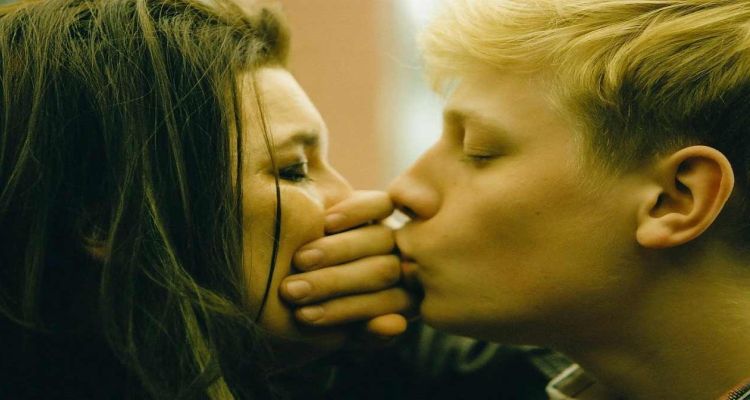 (3 / 5)
(3 / 5)
Right, where to begin. Mommy, the latest work of French-Canadian filmmaker Xavier Dolan, plays like a hyper-saturated soap opera underscored with Greek tragedy and just a dash of plot-convenient alternate universe social community.
Set in a Canada where its legal to indefinitely commit problem kids at the age of sixteen, Mommy revolves around Diane “Die” Després (Anne Dorval), a gutsy, sometimes glamorous single mum who, first we see her, is stepping out a car wreck; a few minutes later Die’s smacking gum and staring down a teacher who questions her ability to look after her troubled son, Steve (Antoine-Olivier Pilon).
Steve is a blonde, high-cheeked nightmare, an ADD Damian bursting with gleefully profane energy, which too often spills over into tearful violence. Die and Steve’s lives are defined by an endless series of terrifying screaming fits and vibrantly affectionate reconciliations.
A loosely plotted exploration of their struggle to endure, the soundtrack of popular hits like “White Flag” by Dido and Oasis’ “Wonderwall” reinforces Mommy’s feeling like a tonally darker, though equally sunlit Boyhood —if Boyhood’s glancing view at domestic abuse had involved familial choking and some getting hit with a picture frame.
The pattern quickly becomes that Steve lashes out while Die tries to keep a lid on things with the help of retiring but quietly impassioned neighbour Kyla (Suzanne Clément). Even as the trio listen to music, dance, and drink wine, there’s an underlying tension. Dolan’s constrains the film in such a way that its freest moments, such as when Steve swings a trolly round and round in an empty car park, the camera doing circles round him, feel like the prelude to something awful.
Mommy is the cinematic equivalent of an abusive spouse; it can’t give you a break without following it up with a punch. Even Die and Steve’s banter is psychologically fraught — “You gonna hold my dick when I piss too?” “If it helps you aim.” It helps therefore that Dorval feels like a Gallic Julianne Margulies, both commanding and vulnerable, while Pilon hints at the needy kid beneath the self-possessing surface, and Clément finds resolves beneath Kyla’s milquetoast veneer.
Mommy is unashamedly a difficult film, a love-hate experience that challenges the possibility of happiness, or even hope, amidst the loneliness and brutality of a mostly uncaring world.
It might have missed out on an Oscar nom — even as it picked up the Jury Prize at Cannes — but if you can make it past the more unlikable aspects, you might discover there’s to be found heartbreak even in the film’s use of aspect ratio.
